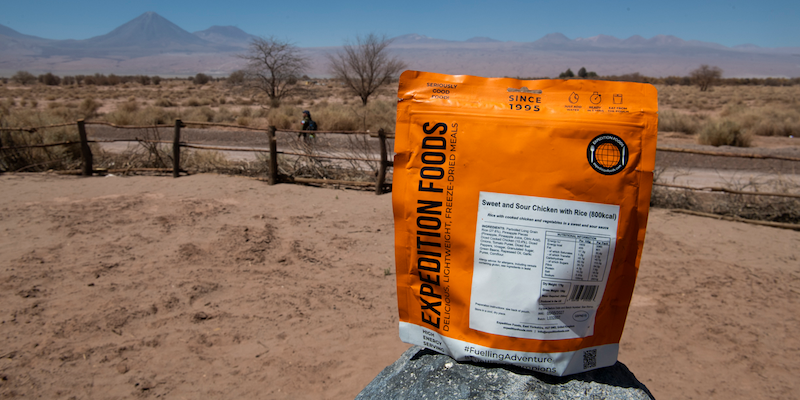-
Meals
-
Ration Packs
-
Special Diets
- Survivor Foods 25-Year Tins
-
Snacks, Drinks & Accessories
- About Us
Polar Exploration - Wendy Searle
December 29, 2022
If you're a fan of polar exploration, Wendy is the lady to know. In 2020 she completed a solo, unsupported Antarctic expedition from Hercules Inlet to the geographic South Pole. She's also completed a full traverse of Greenland and trained extensively in Norway (Finse) and Iceland. Wendy has planned and managed major expeditions including managing Louis Rudd's Spirit of Endurance expedition in 2018, and she now works training polar skills and guiding others. We talked to her about becoming a polar explorer.
Expedition Foods (EF): Why Antarctica?
Wendy Searle (WS): I met Louis [Rudd] in 2015 or 16, I was working for a military charity and he came in and said he was doing a ski across Antarctica and they were going to raise money for the charity. Part of my job was to promote the fundraising that people were doing for the charity. I did a few interviews with the team and went on a few training weekends to gather content, read some polar books and was like: "This is actually amazing."
I wondered if someone like me could ever do something like a guided last degree. Louis encouraged me to go even bigger [and go solo] and it was terrifying. Every day I was thinking "I'm going to make a mistake or something's going to go wrong and everyone will say 'we knew you couldn't do that, what were you thinking'". There was a lot of pressure.

EF: How have you ended up training polar explorers?
WS: After my 2020 expedition, I thought I would go back to my office job and my life and that would be that. I didn't realise, that feeling, it's like an addiction. I came back and was so discombobulated. I'd changed. The only solution was to go and find something else. With covid it took a long time and now here we are.
Now I've got that experience it's time to pay it forward. I'm going to do outreach work with A Healthier Earth. They have a schools program on the outskirts of London, I'm going to go and do some schools talks and share my experience with more people. I might not be able to change the world for everyone but if I can do that for some people I can make a positive impact.
EF: Are your kids supportive of your expeditions and work?
WS: They're hugely supportive. The first time round it was obviously huge because I've never done anything like that before. Now, they're all like "You're definitely going to smash it", "we're so proud of you". I feel like it's almost normal for them now.

EF: What do you eat on expeditions?
WS: I have one-day food packs that cover 24 hours. So it's Expedition Foods, a breakfast, a pudding and some snack bags for throughout the day - chocolate, cheese, a bit of Christmas cake, anything that's high calorie.
Everything freezes. I've got chocolate buttons so that saves me chopping chocolate into bitesize pieces. It needs to be a small enough bit to put in your mouth so it melts as you eat it. Even in Iceland at -10 or -15 in a chest pocket things freeze solid. I did take a Terry's Chocolate last time but I didn't end up eating it as I was worried about running out of food.
EF: Which Expedition Foods meals are your favourites to take?
WS: For my recent expedition I think I had something like 26 Fish and Potato with Parsley Sauce, 5 Chicken Tikka with Rice and 5 Vegetable Tikka with Rice. Last time every time I picked out a meal and it wasn't Fish and Potato, I was disappointed, so the obvious solution was take almost all Fish and Potato.
I've got Chocolate Chip Biscuit Pudding and Custard with Apple. Chocolate Chip Biscuit Pudding is the best because you can eat it straight away. It's like melted chocolate digestives, it's the best thing ever. I've got pudding for most days.
EF: What do you miss when you're living on the ice?
WS: I gave up alcohol 6 months ago for my upcoming expedition but I really love coffee. I always think I'm going to miss it but I never do, I just get into a different mindset. I don't take it with me because a. it's a diuretic, b. it provides no calories, c. it's a waste of additional weight that you could be putting towards something else. Something to look forward to when I get back.

EF: What would you say to aspiring explorers or people wanting to do big adventures?
WS: I had an office job and 4 kids, I wasn't a Polar explorer or an adventurer. I don't think any expeditioner is super human. I think it's people who've had a glimpse of how it feels to be beyond your comfort zone. I wrote in a book review something like "Feeling like life is precious when death is close". Things go wrong. I always think I've got to be 100% perfect if it's going to be a success. I've been working to be more true to that side of myself. We should be trying to life as fully as you can, whatever that means for us.
Look for the awesomeness. It's definitely within your reach and we can all do more than we think we can. Start small. So if you want to do a big polar journey, go and do some days in UK mountains. Reconnect with being in the wild and find other people, talk to as many people as you can who have done those journeys. People are very generous with their time and wanting to share that with others.
Do something small whether that's a 5 day polar trip or a training course with someone. You don't have to go to Norway or Antarctica. The Cairngorms in winter can be a pretty cheeky training ground so don't discount those places for a taste of proper winter travel and keep pushing yourself.
You might not enjoy it in the purest sense of the word when you're out there but in hindsight you can come away with so much and remember all the good things then book or plan something else before you have a chance to back out of it. Make that at the next level rather than something you're completely comfortable with. That's how you grow your comfort zone and then you can put fewer limitations on what you think you're capable of.
Also in Stories

Government Recommended Emergency Kit
November 21, 2024
The Expedition Foods team have been working on their government recommended emergency kits at home, so here's our take on it...

Karakoram Mountains of Northern Pakistan
October 25, 2024
Jon Burgess recounts his expedition to the Karakoram Mountains of Northern Pakistan.

Antarctic Fire Angels - Union Glacier to the South Pole
September 12, 2024
Landing on Antarctica was the most momentous moment of our lives, shedding a tear of emotion as we flew over the landscape that was so huge and intimidating.


